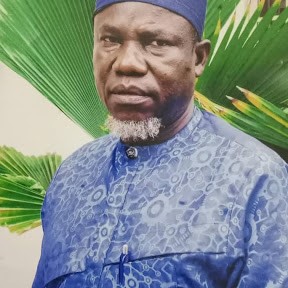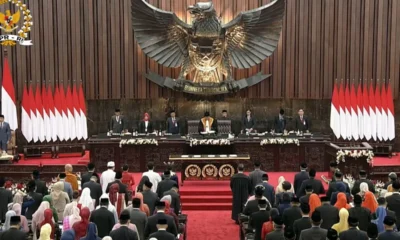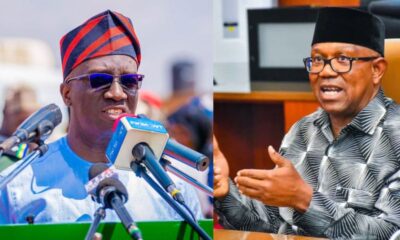Africa
What An Irony! Political Defection Is Outdated In Zambia But Remains A Trend In Nigeria? -By Isaac Asabor
As 2027 approaches, the Nigerian electorate must take notes from Zambia. It is time we stopped celebrating political defections and started demanding political direction. The real defection we need is a defection from backwardness, impunity, and mediocrity to responsibility, accountability, and progress.

As early as 5:00 am today, May 7, 2025, I found myself immersed in the online edition of the Lusaka Times, a Zambian newspaper I read frequently to broaden my understanding of African politics. Among the stories I stumbled upon was a thought-provoking piece titled “Staging Defections Is an Outdated Way of Doing Politics.”
The moment I read through the story, I was subconsciously drawn into a deep reflection on Nigeria’s political landscape. With a sigh, I whispered to myself: “What an irony!” Here I was, reading about a country where political defection, long a dominant feature in Nigeria’s political scene, is now regarded as outdated and archaic.
The story quoted Reagan Kashinga, the Socialist Party’s Copperbelt Provincial Vice Chairperson and spokesperson, who criticized Zambia’s ruling United Party for National Development (UPND) for orchestrating defections from opposition parties to create a façade of popularity. In his words, “Staging defections is an outdated way of doing politics.” That simple sentence hit me like a thunderbolt, considering how in Nigeria, defections are still seen as the lifeblood of political maneuvering.
Kashinga’s bold assertion is a sharp contrast to what we see in Nigeria, where defections are not only common but celebrated like national achievements. Each time a politician defects, especially to the ruling party, it is treated like a major news event, accompanied by colorful ceremonies, media fanfare, and carefully worded speeches filled with promises and sycophancy. The crowd is usually hired, the ‘defectors’ are recycled, and the promises made often fizzle out before the ink dries on the press release.
Unlike Zambia, where at least some voices still raise alarms about the moral and democratic implications of defections, Nigeria has become a haven for political carpet-crossing. There is hardly a political season in Nigeria without mass defections. A senator elected under Party A today will jump to Party B tomorrow if things don’t go his way, and then return to Party A the next week if offered the right incentives.
Let us not sugarcoat it: political defection in Nigeria is not a strategy for ideological realignment, it is a strategy for personal survival. It is not driven by conviction but by convenience. It has little or nothing to do with public interest, but everything to do with private gain.
The trend has become so pervasive that Nigerian voters barely bat an eyelid when a politician dumps one party for another. We have grown accustomed to seeing supposed “opposition leaders” sit comfortably at the table with ruling party chieftains after changing jerseys mid-match, so to speak. The defector often justifies the move by claiming they want to “join hands to develop the country” or “align with the vision of the President,” yet, development remains elusive, and the vision remains blurred.
Political defection in Nigeria is not just a trend; it has become a theater of absurdity. Consider the fact that in the run-up to every election cycle, there is a frenzy of defections, almost like a migration season in the animal kingdom. It is common to see political leaders switching allegiances without regard for the mandates given to them by their constituents. Nobody resigns to recontest under a new party. The seat, once won, is treated as personal property, regardless of the party platform on which it was secured.
Take the example of a former Speaker or Senate President switching parties on the eve of an election, dragging along dozens of lawmakers. These political gymnasts often go on to win re-election, not because the people support their antics, but because of the massive state resources deployed to buy votes and suppress opposition.
Ironically, these defections are not limited to the legislative class. Governors, former ministers, and even presidential aspirants routinely dump parties for the ruling coalition once they sense the tides are no longer in their favor. What should be condemned as betrayal of public trust is hailed as political “realignment.”
Back to Zambia, where Mr. Kashinga called the bluff of the ruling UPND’s staged defections, labelling them as archaic and deceitful. He challenged the government to instead address critical issues such as load shedding, cost of living, and economic reforms. His words were not only brave but insightful. He reminded the political elite that the only meaningful way to gain popularity is by performance, not propaganda.
Contrast this with Nigeria, where politicians still believe that defecting to the ruling party is the only way to retain relevance, avoid prosecution, or secure juicy appointments. Public service has become transactional. Politics has become a chessboard of selfish ambitions.
The Zambian political class may not be perfect, but if at least some of their voices are now calling out the futility of political defection as a popularity tool, then they are ahead of Nigeria in political maturity.
Let us face the truth: Nigerian voters are partly to blame for this menace. Our political culture still worships personalities over principles. We cheer politicians who defect to “our side,” forgetting that their loyalty lies not with the people, but with their pockets.
Until the average voter begins to ask tough questions, about ideology, performance, consistency, and commitment, we will continue to be victims of recycled leaders who lack vision and integrity.
We must begin to reject defectors unless they can convincingly demonstrate that their move is based on policy alignment rather than personal gain. We must demand laws that mandate elected officials to vacate their seats if they switch parties without clear justifications tied to public interest. The courts must stop enabling political prostitution under the guise of technicalities.
That a country like Zambia, a fellow African democracy, is boldly calling out defections as outdated should be a wake-up call to Nigeria. What we are celebrating here is being condemned elsewhere. What we see as strategy is seen as shame.
The time has come for us to ask ourselves: What exactly do we want from our politicians? Is it loyalty to party lines, or loyalty to the people? Is it jumping ship for survival, or standing firm for service?
As 2027 approaches, the Nigerian electorate must take notes from Zambia. It is time we stopped celebrating political defections and started demanding political direction. The real defection we need is a defection from backwardness, impunity, and mediocrity to responsibility, accountability, and progress.
What an irony indeed!




























